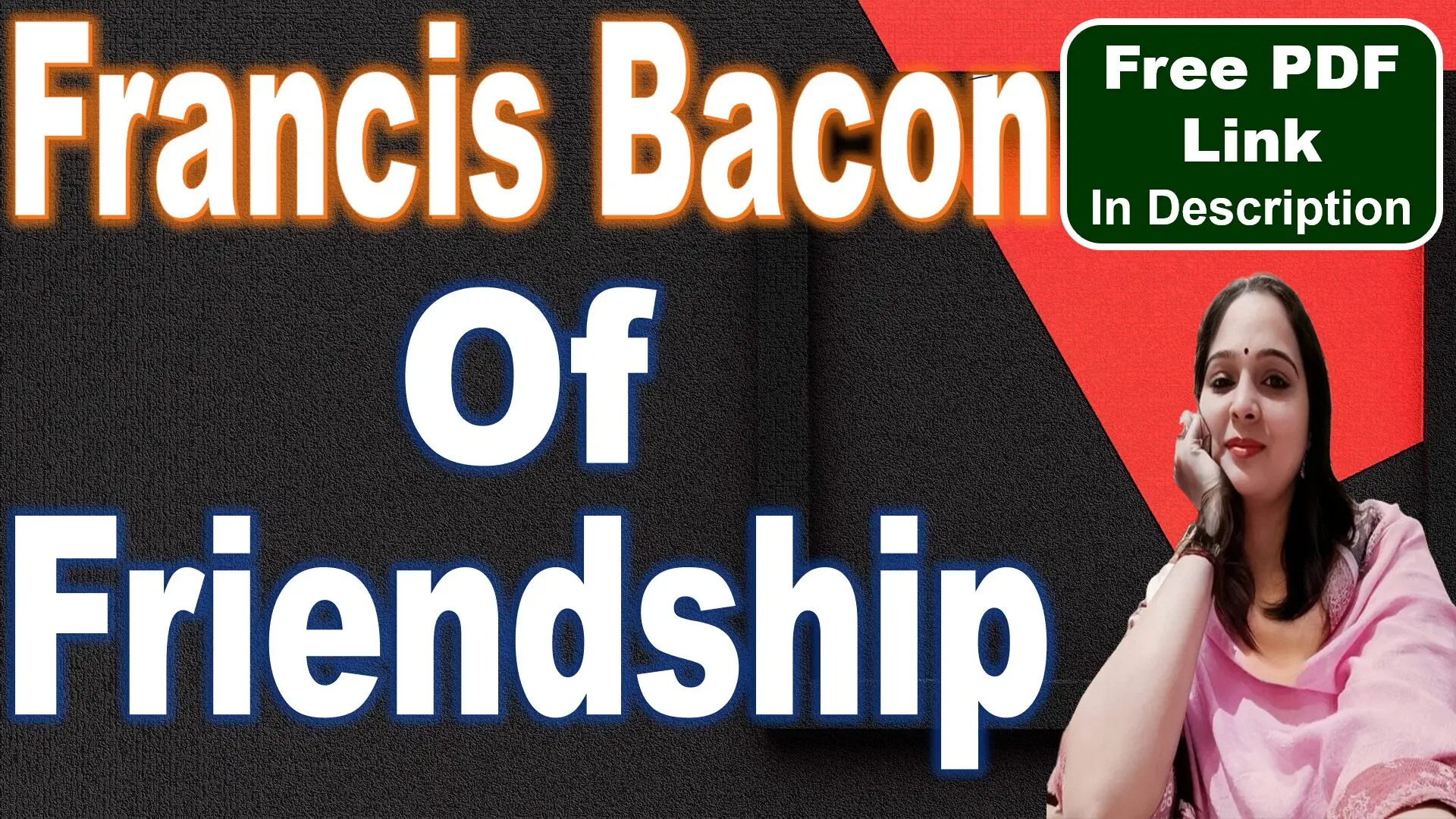
Who wrote the essay “Of Marriage and Single Life”?
Sir Francis Bacon.
What is the main contrast discussed in the essay?
The contrast between marriage and single life.
According to Bacon, what does having a wife and children do to a man?
It gives “hostages to fortune,” limiting his freedom.
Who does Bacon say have produced the greatest public works?
Unmarried or childless men.
What does Bacon say unmarried men are best at being?
Best friends, best masters, and best servants.
Why do some men prefer to stay single, according to Bacon?
For the sake of personal liberty.
What does Bacon say about single men and public service?
They often devote themselves more to public service.
What is a common reason for remaining single, as per Bacon?
The desire for personal freedom.
How does Bacon describe the impact of marriage on soldiers?
Generals often remind soldiers of their families to motivate them.
What effect does marriage have on men’s humanity, according to Bacon?
It disciplines and softens them.
How does Bacon describe the charity of single men?
They may be more charitable but can also be more hardhearted.
What role do wives play in a man’s life as he ages, according to Bacon?
Mistresses when young, companions in middle age, nurses in old age.
What does Bacon say about the pride of chaste women?
They can become proud and difficult.
How does Bacon view jealousy in marriage?
It undermines a wife’s respect for her husband’s wisdom.
What saying does Bacon quote regarding when a man should marry?
“A young man not yet, an elder man not at all.”
What is Bacon’s view on bad husbands and good wives?
Bad husbands often have good wives, especially if chosen against advice.
Why might single life be suitable for churchmen, according to Bacon?
It allows them to focus more on charity.
What does Bacon suggest is one of the best bonds in marriage?
The wife’s belief in her husband’s wisdom.
What does Bacon say about single men’s role as subjects or citizens?
They are less reliable as subjects because they are more likely to flee.
How does Bacon view the wealth of men without children?
Some take pride in having no children to appear richer.
What is the “discipline of humanity” that marriage provides?
It makes men more compassionate and connected.
How does Bacon describe the economic view of family by some men?
They see a wife and children as financial burdens.
What does Bacon think of single life for judges and magistrates?
It is indifferent; their effectiveness depends more on their integrity.
What does Bacon suggest motivates soldiers in battle?
Thoughts of their wives and children.
How does Bacon contrast the charity of single and married men?
Single men may be more charitable, but married men are more humane.
What effect does custom have on married men, according to Bacon?
It often makes them loving husbands.
What does Bacon say about rich men who take pride in having no children?
They do so to appear wealthier.
What does Bacon imply about the connection between marriage and ambition?
Marriage can be a hindrance to great ambitions.
What does Bacon think about the role of wives in old age?
Wives serve as nurses to their husbands in old age.
What is the general tone of Bacon’s essay towards marriage?
Balanced, recognizing both the advantages and challenges of marriage and single life.
Short Answer Questions
Of Marriage and Single Life by Francis Bacon
How does Bacon view the relationship between marriage and personal freedom?
Bacon sees marriage as a limitation on personal freedom. He argues that a man with a wife and children has “given hostages to fortune,” meaning that family obligations can tie him down and prevent him from pursuing ambitious or risky endeavors. In contrast, single men enjoy more liberty and can focus on their personal goals without such constraints.
What does Bacon suggest about the contributions of unmarried or childless men to society?
Bacon suggests that some of the greatest public works and contributions have come from unmarried or childless men. Without the distractions and responsibilities of a family, these men can dedicate themselves fully to public service and ambitious projects. Their lack of familial ties allows them to “marry and endow the public” with their resources and efforts.
What are Bacon’s views on the motivations behind some men choosing to remain single?
Bacon notes that many men choose to remain single primarily for the sake of personal liberty. They wish to avoid the restraints and responsibilities that come with marriage and family life. Bacon also observes that these men often value their freedom so highly that they view even minor constraints, like wearing belts or garters, as burdensome.
According to Bacon, how does marriage contribute to the ‘discipline of humanity’?
Bacon believes that marriage and children help to cultivate compassion and responsibility in men, which he refers to as the “discipline of humanity.” The obligations of family life require men to be more considerate, patient, and connected to others, tempering their more selfish or harsh tendencies. In this way, marriage can be a moralizing force that softens and refines a man’s character.
How does Bacon describe the impact of single life on charity and cruelty?
Bacon observes that single men may have more resources to be charitable because they do not have to provide for a family. However, he also notes that they can be more cruel and hardhearted, as they are not regularly called upon to show tenderness and compassion, which family life often demands. This can make single men more severe, especially in roles like inquisitors.
What does Bacon say about the roles wives play at different stages of a man’s life?
Bacon describes wives as fulfilling different roles throughout a man’s life: they are mistresses when he is young, companions during middle age, and nurses in old age. This suggests that the nature of marriage changes over time, providing different types of support and companionship as a man’s needs evolve with age.
How does Bacon perceive the effect of jealousy on marriage?
Bacon argues that jealousy can be detrimental to a marriage because it undermines a wife’s respect for her husband. He believes that one of the strongest bonds of chastity and obedience in a marriage is the wife’s belief in her husband’s wisdom. If a husband is overly jealous, it signals a lack of trust and insecurity, which can erode the wife’s regard for him.
What does Bacon imply about the economic considerations some men have regarding marriage and children?
Bacon suggests that some men view marriage and children as financial burdens. He criticizes wealthy, covetous men who take pride in having no children because it allows them to appear even richer. These men may have heard comments like “he is a rich man, but he has a great charge of children,” implying that having children diminishes their wealth and status.
How does Bacon relate marriage to military service and discipline?
Bacon notes that military leaders often remind soldiers of their wives and children to inspire them to fight bravely. He contrasts this with cultures like the Turks, where marriage is less respected, and suggests that this disdain for marriage makes their soldiers more base or less honorable. Marriage, in this context, is seen as a source of motivation and moral discipline for soldiers.
What is Bacon’s overall message about the choice between marriage and single life?
Bacon’s overall message is that both marriage and single life have distinct advantages and disadvantages. He does not advocate for one over the other but instead encourages individuals to consider their values, circumstances, and goals when making this choice. Marriage brings responsibilities and the potential for personal growth, while single life offers greater freedom and the ability to focus on personal or public ambitions.





